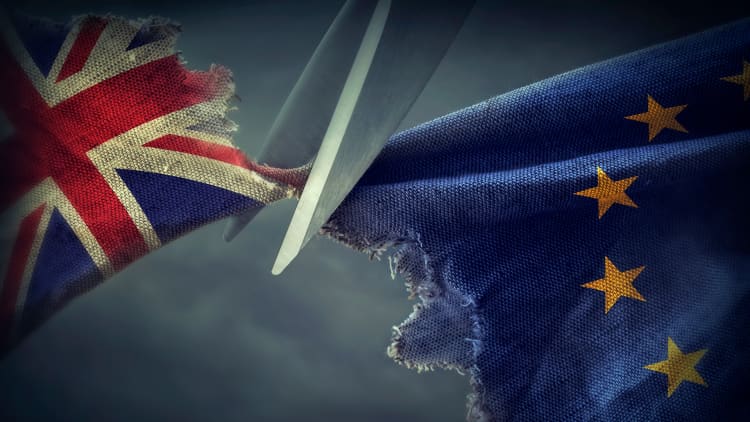Extending the official Brexit deadline for the U.K. could bring a wave of extra logistical and political problems for the European Union.
The ongoing deadlock has sparked a debate on the potential extension of Article 50 — the legal means by which the U.K. leaves the EU. However, there is strong opposition from some European lawmakers over giving more time to the U.K. to sort out its domestic politics.
The U.K. is set to leave the EU on March 29 — but this could change if the U.K. asks for an extension and the other 27 member nations accept the request. Extending the departure beyond the agreed date would likely clash with European parliamentary elections that are set to take place between May 23 and 26. The chamber is made of lawmakers from all 28 European member countries, including the U.K., and is responsible for approving European policies, such as the Union's total budget.
"What we will not let happen, deal or no deal, is that the mess in British politics is again imported into European politics. While we understand the U.K. could need more time, for us it is unthinkable that Article 50 is prolonged beyond the European Elections," Guy Verhofstadt, a member of the European Parliament and its representative in Brexit negotiations, said on Twitter on Wednesday.
His comments come at a time when U.K. Prime Minister Theresa May's proposed Brexit deal suffered a historic defeat in the House of Commons on Tuesday. Meanwhile, French President Emmanuel Macron weighed in on the possibility that the U.K. would have to push back its departure date.
Macron said Wednesday that the U.K. "will take more time (to overcome the Brexit impasse), maybe they will step over the European elections in order to find something else."
Speaking to CNBC via email Friday, Seb Dance, member of the European Parliament for the U.K. Labour party, said the prospect of having Brexit and the European elections clashing "is a logistical headache."
"The impact of delaying Brexit on the EU elections is certainly troublesome logistically speaking," he said, "but politically speaking it shouldn't make a difference as it is entirely possible that elections take place in the other member states without needing to take place in Britain."
However, some argue that even politically, it would be troublesome, as European officials and institutions want to focus on campaigning and speaking to voters ahead of the vote. The wave of populist sentiment in Europe after the fallout of the sovereign debt crisis has raised concerns, among the traditional parties, about what the next European Parliament will look like.
According to a Brussels-based European official, who did not want to be named due to the sensitivity surrounding the Brexit talks, an extension would likely mean that the U.K. would have to participate in the vote. This is because it would still technically be a member of the European Union.
Zsolt Darvas, senior fellow at Bruegel, reiterated this point in an email to CNBC Friday. "If the extension goes beyond the elections, the U.K. would have to elect members of the European Parliament. Not expecting this, the European Parliament has already agreed on how to allocate the U.K. seats after Brexit. That agreement will have to be revised, or perhaps its implementation be postponed after the actual, delayed Brexit date."
"From the U.K. side, it might look awkward to elect members of the European Parliament when people expect that the U.K. will leave the EU not much after the European elections; plus the U.K. would need to act quickly to make the European Parliament election possible, which would also involve some costs."
The European Parliament declined to comment on the possibility of an extension to Article 50. "Our working hypothesis is that the U.K. is leaving the EU on 29 March this year … We can, and will, not speculate on any scenarios. For now, the ball is in the U.K.'s court," a spokesperson told CNBC via email.
Background preparations for an extension?
Media reports have suggested that the European institutions are already preparing for an extension of Article 50 as May faces an uphill task of getting her deal through Parliament.
A European official told CNBC anonymously that they are not aware of any preparations, but "it would only make sense to extend if there is a plan and a demand from the U.K."
This could mean the EU may look at accepting an extension request from the U.K., provided the latter has a clear plan of action in place with regards to exiting the Union.



